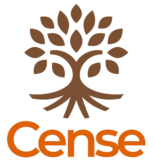
In this second in a short series on change-making fundamentals, we look at the role of knowledge. This was covered in the second episode of Censemaking: The Innovation Podcast.
Knowing and Doing
There is an unspoken assumption that ‘to know is to do‘ anchoring knowledge to change. Yet, as evidence shows all around us (just look at politics or COVID-19, to name just two) that what we say, believe, know, and do are all different.
To innovate is to take knowledge and create something new with it. While knowledge is almost always an ingredient of change, it isn’t always the main driver of change. To illustrate, consider that more than 1.3 billion people in the world regularly use tobacco products even though the science on the negative health consequences of cigarette use is overwhelming. At present, more than 8 million people every year die from cigarette use. So knowledge is important, but we know it’s not the only way to get someone to change.
What’s necessary are to focus our efforts on types of knowledge and their roles in facilitating change. There are three core areas of knowledge:
Types of Knowledge
Process knowledge is the kind of knowledge we have for how to get things done. Process knowledge might be how to organize a team, or how bring things about and deliver service value.
Technical knowledge is tied to the use of tools, frameworks and their application related to the specific means of accomplishing things. Technical knowledge might be how to use a particular piece of software
Content knowledge is focused on the topics of relevance to what you want to innovate or change. It may be knowledge about the market or the particular problem of which your innovation is looking to solve.
Research and Self Assessment
Innovation doesn’t require that we are experts in everything, but it does require that we know, a certain amount of what is important. This is where self-assessment like the personal inventory method and other tools can come in handy. It’s also where design research . If, for example, you’re looking into children’s mental health, you probably need to know a little bit about how children function and what services might already be in place.
Design research helps build content knowledge and helps us to fill gaps in skills or process knowledge that we may not have. However, we don’t recommend so much research that it is no longer easy to make sense of what you are doing. Sensemaking is a key stage of synthesis and strategy for dealing with large amounts of research data. It’s also important to also remember that innovation is about something new so we may not have all the data that we need to draw clear conclusions.
The key lessons are that we can’t assume that having knowledge leads to change. With research, sensemaking, and processes to ask questions about what we know we can better innovate.
Censemaking: The Innovation Podcast is available through most places you get your podcasts.
Photo by Gabriella Clare Marino on Unsplash

